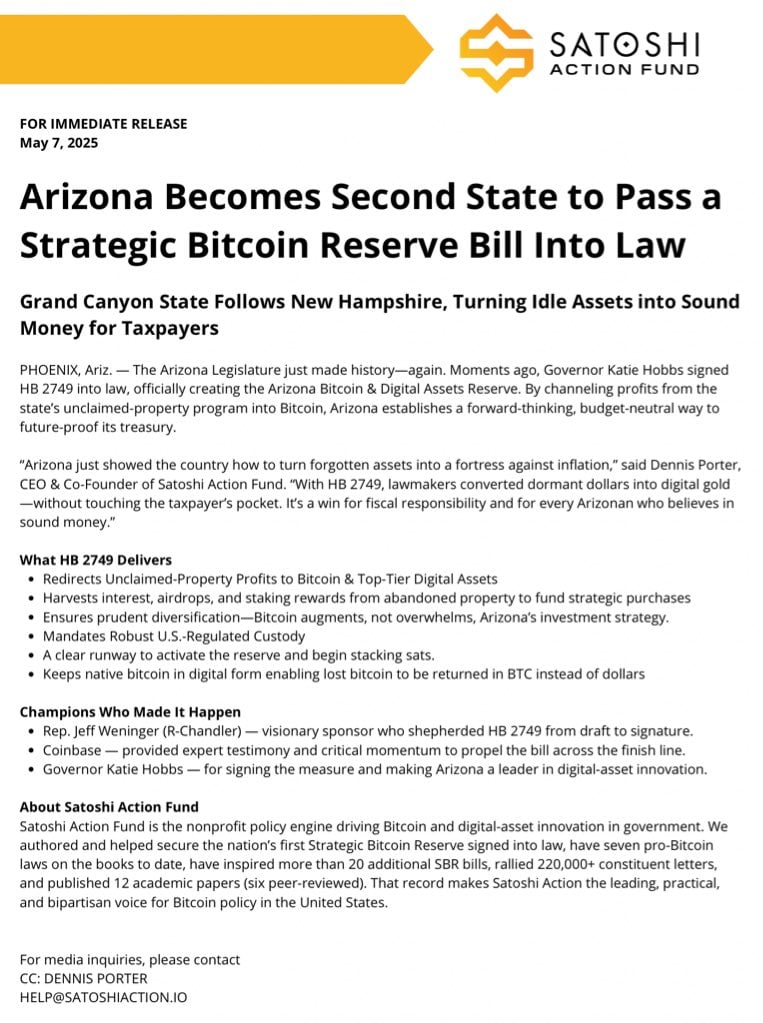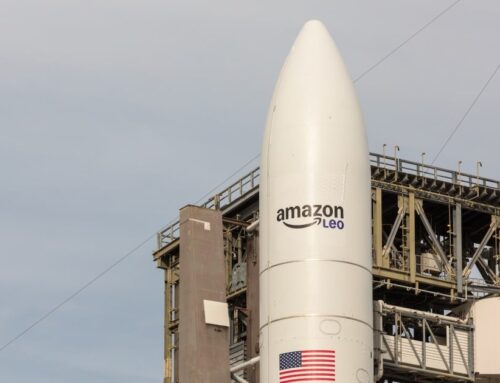Arizona passes bill to establish Bitcoin reserve after vetoing separate crypto legislation
May 7, 2025
Home » Regulation » Arizona passes bill to establish Bitcoin reserve after vetoing separate crypto legislation
Key Takeaways
- Governor Katie Hobbs signed a bill creating a Bitcoin and Digital Assets Reserve Fund in Arizona.
- The reserve fund will oversee digital assets, preventing Bitcoin from being used for general fund transfers.
Share this article
Arizona Governor Katie Hobbs has signed House Bill 2749, which aims to establish a reserve fund for Bitcoin and other digital assets, into law, making the state the second in the US to create such a framework, according to a new announcement from Dennis Porter, CEO of Satoshi Action Fund.

The signing came shortly after Hobbs vetoed Senate Bill 1025, a separate Bitcoin reserve bill that would have allowed the state to invest up to 10% of treasury and pension assets in digital assets like Bitcoin.
In her veto message, the governor stated that “Arizonans’ retirement system is strong because it sticks to proven investment strategies,” and that it’s inappropriate to expose the state’s retirement funds to untested investments like digital assets.
Porter said that of all the crypto proposals presented to Hobbs, House Bill 2749 stood out as her favorite due to its budget-neutral design.
The new law, backed by Representative Jeff Weninger with bipartisan support, modernizes Arizona’s unclaimed property laws to include digital assets and creates a state-managed reserve fund for holding and potentially growing these assets.
Under the legislation, the state treasurer will oversee a reserve fund comprising digital assets acquired through airdrops, staking rewards, and interest. A qualified custodian may actively stake the assets to generate returns for the state. Rewards earned on unclaimed digital assets held for three years will be deposited into the new fund.
While the law permits transferring 10% of certain digital assets to Arizona’s general fund with legislative approval, it specifically prohibits Bitcoin from such transfers, preserving it as a strategic reserve.
The legislation updates the Arizona Revised Statutes to recognize digital assets as a distinct property class and establishes that these assets are considered abandoned after three years of inactivity, unless owners take specific actions like logging in or transacting.
Earlier, Hobbs vetoed Senate Bill 1025, which would have allowed the state to invest up to 10% of treasury and pension assets in digital assets like Bitcoin.
This is a developing story.
Share this article
Search
RECENT PRESS RELEASES
Related Post




